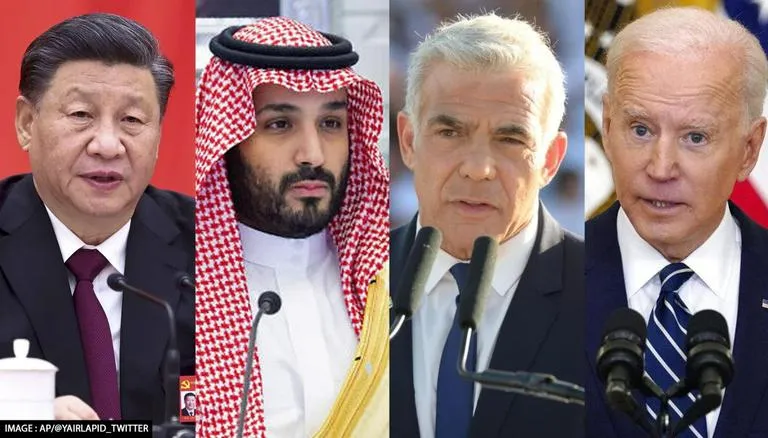As US President Joe Biden concluded his Middle East trip prioritising his ‘pragmatic’ policies for the region, Chinese Foreign Minister Wang Yi on Sunday lashed out at him saying Washington must stop meddling in the internal affairs of the region. Yi was speaking through a video link with his Syrian counterpart Faisal Mekdad when he accused the US of trying to “transform” the Middle Eastern region to comply with Western standards. He further affirmed Beijing’s commitment to supporting the Middle East independently by exploring the path of development and ceasing conflicts.
“China firmly supports the people of the Middle East in exploring the path of development independently…and supports the regional countries in resolving their security issues through unity and self-empowerment,” Yi was quoted as saying in a transcript of the video-con by the Chinese Foreign Ministry.
“The United States and the West should change their old habits and stop pointing fingers and interfering in the affairs of the Middle East at every turn, trying to transform the region by their own standards,” he added, referring to Biden’s maiden visit to Israel, West Bank, and Saudi Arabia.
Yi insisted that Beijing believed the Middle Eastern countries “have the ability and wisdom to maintain overall situation of peace and stability and resolve issues left over from history.” The Chinese Foreign Minister’s remarks came targetting Biden’s speech in Israel where during a joint conference alongside Israeli interim Prime Minister Yair Lapid the American President said he wants to “promote US interests” in the region. Biden during the trip also said that he wanted not to repeat the mistakes of “walking away” from the region amid confrontations between Iraq and Iraq as well as Iran’s nuclear ambitions.
Meanwhile, Biden also stirred up controversy after he met with Mohammed Bin Salman with a fist bump, wildly contradicting his previous criticisms of the Saudi leader accused of ordering the murder of Washington Post journalist Jamal Khashoggi. Noting Biden’s actions and speeches, Politico said that the trip largely demonstrated how Washington’s values at times are overshadowed by “cold pursuits of national interests.”
China’s growing influence in Middle East
While the US mostly poured all its focus and funds to help Ukraine in the war against Russia, China, meanwhile, scaled up its influence in the Middle East, said an international relations scholar Ma Xiaolin. Speaking to South China Morning Post (SCMP), Ma said, “China has a huge need for energy supply from the Middle East which in turn is a big market for industrial goods from China.” The geography also makes the Middle East a gold mine for Beijing’s brainchild- The Belt and Road Initiative, which is a transcontinental linkage of roads and railways to revive the Silk Route, Ma added. Further, the Middle Eastern states- for or against the US- often prefer China given the history that Beijing never invaded or colonised the regions unlike the West, Ma explained. This gave China the leverage to strengthen ties with Israel, Turkey, or Arab nations.

